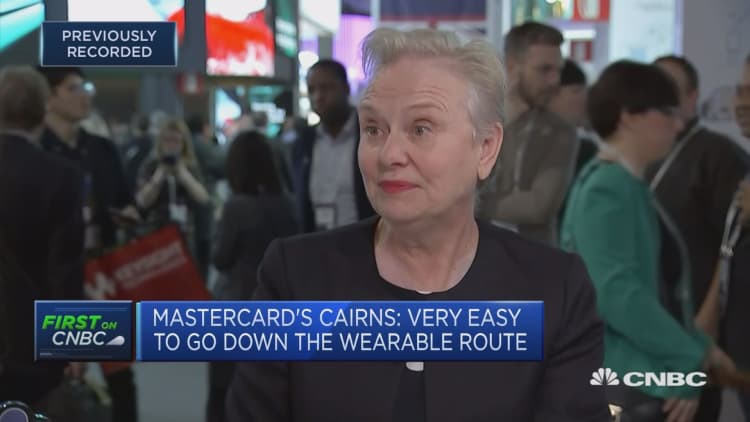
The pace with which we are moving toward the internet of things is "very rapid" but we "can't have the internet of everyone without the inclusion of everyone," according to the vice chairman of payments giant Mastercard.
"You have to start focusing on how does the human get involved, and that's going to be through having a digital identity," Ann Cairns told CNBC's Karen Tso on Monday at the Mobile World Congress in Barcelona.
"And we think the safe and sensible way to develop that is to be able to grab data from lots of different sources and recombine it to create your digital identity so that you can operate… anywhere that you are on the planet," she added.
The European Union describes the internet of things as merging "physical and virtual worlds, creating smart environments."
Think of devices that are connected to the internet and able to "talk" to one another. One example would be a thermostat in your home that you control with your smartphone from your office.
With our lives becoming increasingly digitized, the amount of personal data we are sharing online – think medical records, banking details and shopping orders – has raised concerns about privacy.
Last year, the European Union (EU) sought to introduce tougher rules on people's information through its General Data Protection Regulation (GDPR). This new legislation introduced "one set of data protection rules for all companies operating in the EU, wherever they are based."
"The way that I've described digital identity… the data need not move from, for example, the people holding your passport data today, they already have that," Cairns added.
"The bank, that already has your bank details, that needn't move, because what you can do is you can 'tokenize' the data so that only the token moves to combine and create that identity for you."
Such a system would, Cairns said, address the latest thinking about privacy, which she described as "really important."




